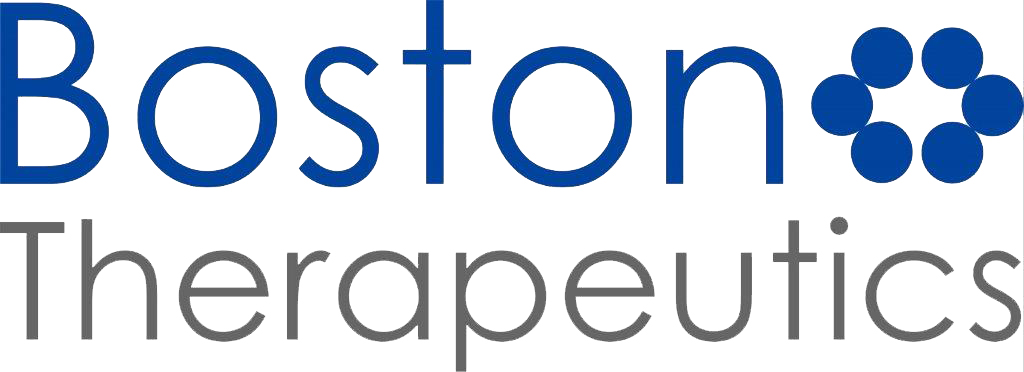BTI320 Product Update from Boston Therapeutics, Inc. (BTHE-OTC)
/Logo_BTHE.jpg?width=199&name=Logo_BTHE.jpg) Pharmaceutical company Boston Therapeutics, Inc. (BTHE-OTC) announced today that it would be making an important presentation at the American Association of Clinical Endocrinologists’ (AACE) 23rd Annual Scientific and Clinical Congress in May 2014. The presentation will center on a late-breaking poster for the company’s lead product candidate, BTI320, which is a non-systemic, non-toxic, plant-based chewable tablet being evaluated as a therapy for Type 2 diabetes patients taking metformin.
Pharmaceutical company Boston Therapeutics, Inc. (BTHE-OTC) announced today that it would be making an important presentation at the American Association of Clinical Endocrinologists’ (AACE) 23rd Annual Scientific and Clinical Congress in May 2014. The presentation will center on a late-breaking poster for the company’s lead product candidate, BTI320, which is a non-systemic, non-toxic, plant-based chewable tablet being evaluated as a therapy for Type 2 diabetes patients taking metformin.
What: the AACE 23rd Annual Scientific and Clinical Congress
Where: Paris Las Vegas Hotel in Las Vegas, Nevada
When: May 14-18, 2014
Boston Therapeutics’ Presentation: Sat., May 17 from 9:45 to 11:00 AM
For more details or to attend: http://am.aace.com/
Boston Therapeutics’ AACE poster addresses the viability of BTI320 as a treatment for glycemic control, and is focused on the molecular mechanism of action of this product candidate.
About BTI320 for Diabetes
The BTI320 compound—which is currently in Phase II trials—works in the gastrointestinal tract to block the action of carbohydrate-hydrolyzing enzymes that break down carbohydrates into glucose. This reduces the amount of glucose available for absorption into the bloodstream. The majority of anti-diabetes drugs on the market today—hypoglycemic drugs—force blood sugar levels down systemically by targeting organs, such as the pancreas and other cells within the body. This can increase the risk of side effects, as has been shown in recent Food and Drug Administration (FDA) findings. In contrast, BTI320 offers a preemptive approach to blood sugar management by targeting enzymes in the mouth and small intestine to reduce the uptake of glucose during the digestion of carbohydrate foods—which may provide for an improved safety profile.
The active ingredient in BTI320 is mannan. Mannans are a group of plant-derived complex carbohydrates, or polysaccharides, which consist mainly of polymers of the sugar mannose. Some of the plants from which mannans are derived include guar, locust bean, fenugreek, barley, and konjac. Published studies on mannans have shown that they possess significant biological activity—ranging from inhibiting cholesterol absorption, promoting wound healing, and inhibiting tumor growth. Studies have also shown that consuming mannan before a meal can reduce the rise in blood glucose subsequent to that meal. Therefore, supplementation with mannan may be beneficial in the management of diabetes by supporting healthy blood sugar levels.
The Company entered into a clinical trial at Dartmouth Medical Center in Lebanon, New Hampshire, for BTI320 to measure post-prandial elevation of blood glucose. The goal was to leverage data from this study in the marketing of BTI320. This Phase IIa trial, with results recently published in the peer-reviewed journal Endocrine Practice, showed that BTI320 was well tolerated in patients taking various anti-diabetic agents, including metformin.
BTI320’s safety profile has reduced risk due to its Generally Recognized as Safe (GRAS) classification, and as well, has a 505(b)(2) accelerated development pathway for FDA approval. This route permits companies to obtain FDA approval of New Drug Applications (NDAs) by relying, in part, on the FDA’s findings for a previously approved drug. The benefits are many as this method may provide for a more expeditious way of achieving approval for product candidates by employing third-party data in support of a company’s own clinical studies.
********************
In addition to BTI320, Boston Therapeutics' portfolio includes a second pipeline candidate and a marketed over-the-counter (OTC) dietary supplement. For details of these products and other company fundamentals, view our Executive Informational Overview on Boston Therapeutics published on March 27, 2014.
